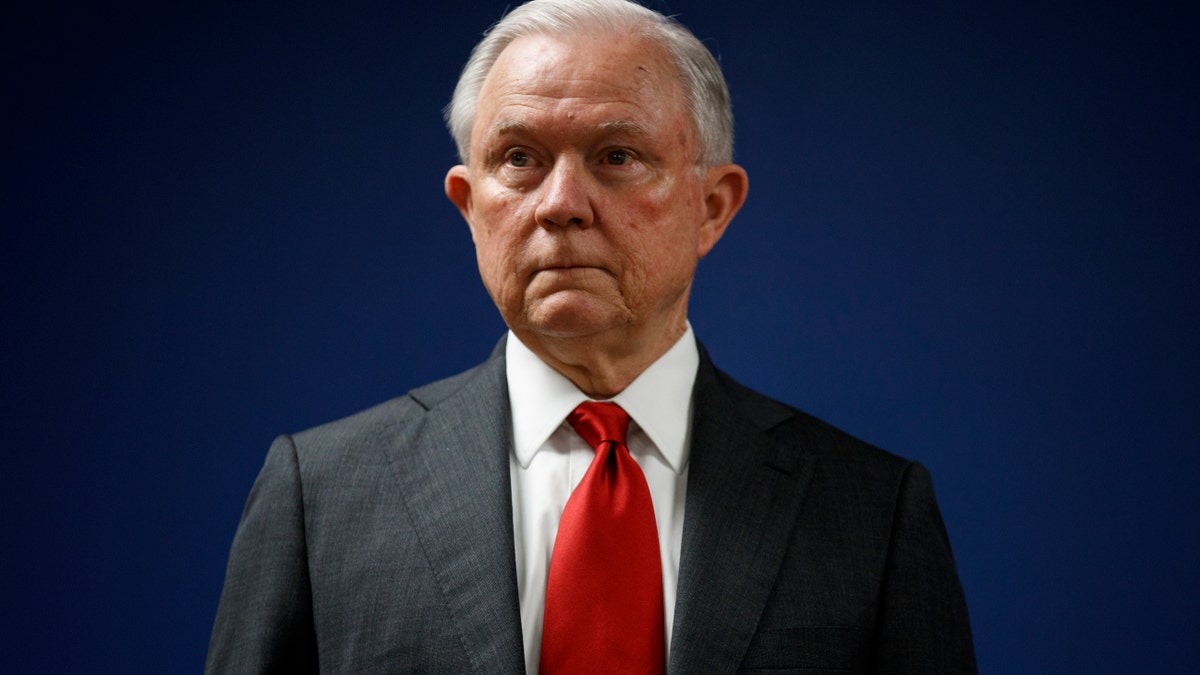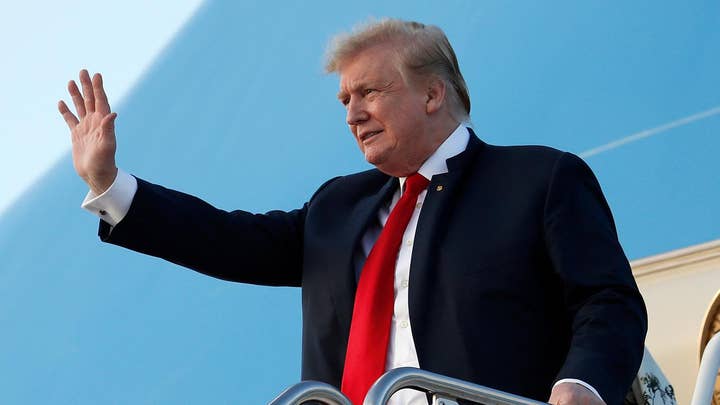
In this Oct. 15, 2018, Attorney General Jeff Sessions pauses during a news conference at the U.S. Attorney's Office for the District of Columbia. (AP Photo/Carolyn Kaster, File)
Special Counsel Robert Mueller’s office investigated former Attorney General Jeff Sessions for possible perjury, but it found evidence was “insufficient” to prove that he was “willfully untruthful” in his answers.
Mueller’s report, a redacted version of which was released Thursday, said that it looked into Sessions’ interactions during the campaign with Russian Ambassador Sergey Kislyak. Kislyak and Sessions met during the Republican National Convention in July 2016 and in his Senate office in September.
TRUMP RAILS AGAINST ASSOCIATES WHO SPOKE TO MUELLER, CALLS CLAIMS 'TOTAL BULL---T'
“The office considered whether, in light of these interactions, Sessions committed perjury before, or made false statements to, Congress in connection with his confirmation,” the report said.
Sessions said in his Senate confirmation hearing in January 2017 that he “did not have communications with the Russians” in response to a question about Trump campaign communications with the Russian government.
He also followed up with written responses, answering “no” to a question that asked whether he had “been in contact with anyone connected to any part of the Russian government about the 2016 election, either before or after election day.”
In a March 2017 follow-up, after his interactions with Kislyak were reported by the media, Sessions said he did "not recall any discussions with the Russian Ambassador, or any other representatives of the Russian government, regarding the political campaign on these occasions or any other occasion."
The report says the investigation established that Sessions interacted with Kislyak and that the Russian mentioned the presidential campaign “on at least one occasion” but that “the evidence is not sufficient to prove that Sessions gave knowingly false answers to Russia-related questions in light of the wording and context of those questions.”
Mueller’s team says that the evidence “makes it plausible” that Sessions didn’t recall discussing the campaign with Kislyak, and his answer in his confirmation hearing was in response to a question about a an alleged continued exchange of information between the campaign and the Russian government.
“Sessions later explained to the Senate and to the Office that he understood the question as narrowly calling for disclosure of interactions with Russians that involved the exchange of campaign information, as distinguished from more routine contacts with Russian nationals,” the report says. “Given the context in which the question was asked, that understanding is plausible.”
NEWT GINGRICH: CAUGHT UP IN THE MUELLER MEDIA MADNESS
As a result, Mueller's office concluded that “the evidence was insufficient to prove that Sessions was willfully untruthful in his answers and thus insufficient to obtain or sustain a conviction for perjury or false statements.”
Sessions’ personal lawyer said in March last year that Sessions was not not the subject of a federal criminal investigation for alleged perjury.
ABC News reported that former FBI Deputy Director Andrew McCabe had overseen an investigation into whether Sessions "lacked candor" when he testified before Congress about contacts with Russian operatives during the 2016 presidential campaign.
"The Special Counsel‘s Office has informed me that after interviewing the Attorney General and conducting additional investigation, the Attorney General is not under investigation for false statements or perjury in his confirmation hearing testimony and related written submissions to Congress," attorney Chuck Cooper said in a statement.
CLICK HERE FOR THE FOX NEWS APP
Sessions announced in 2017 that he would recuse himself from overseeing any FBI probe into alleged ties between the Trump campaign and Russian officials -- placing Deputy Attorney General Rod Rosenstein in charge of overseeing the probe.
Sessions resigned in November 2018 and was subsequently replaced by current Attorney General William Barr.
Fox News’ Jake Gibson contributed to this report.





